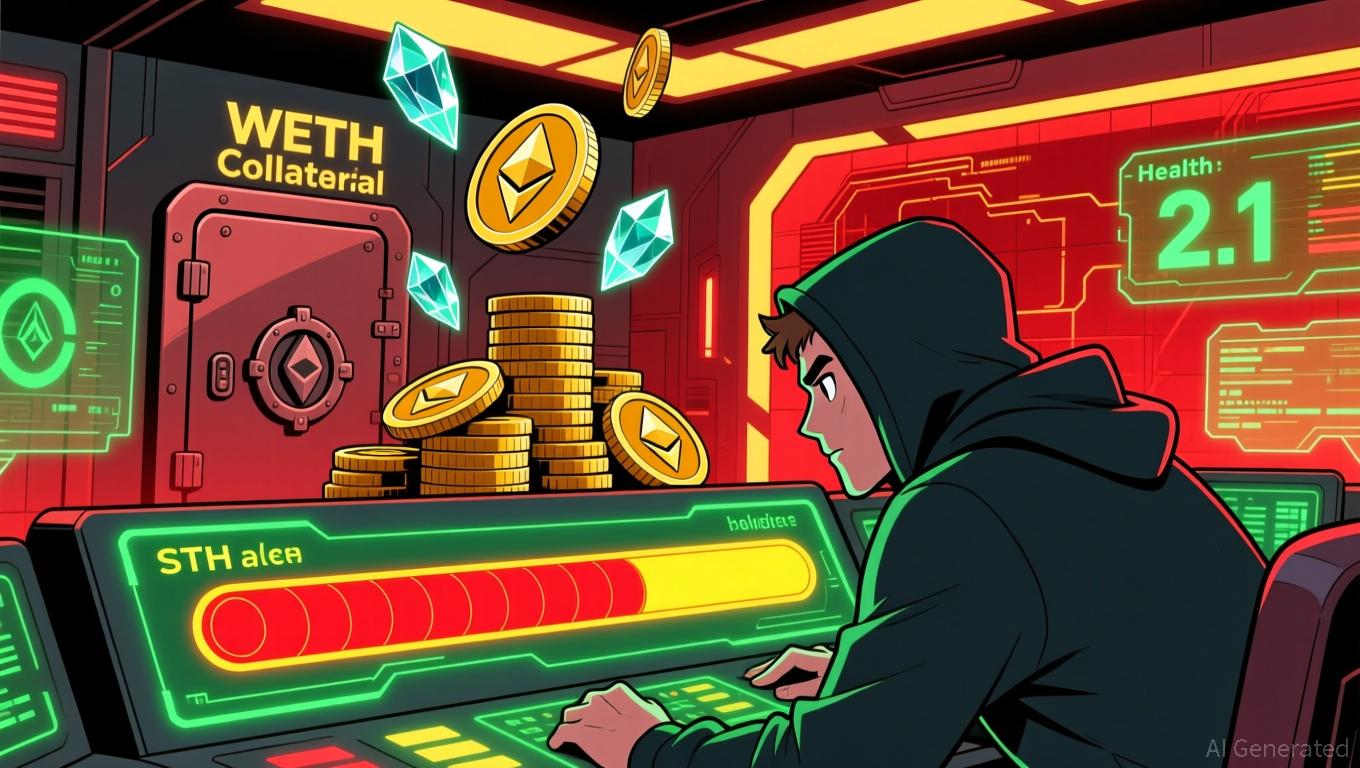Visa and Mastercard Reach Fee Agreement: Benefits for Merchants, Questions Remain for Shoppers
- Visa and Mastercard near settlement with U.S. merchants over credit-card interchange fees, potentially reshaping payment ecosystems for businesses and consumers. - Proposed agreement would reduce fees by 0.1 percentage point and allow retailers to reject high-fee rewards cards, addressing long-standing merchant grievances since 2005. - Mastercard also seeks to expand stablecoin infrastructure via $1.5B Zerohash acquisition, signaling strategic pivot toward blockchain integration. - Settlement aims to bal
Visa (V) and
The conflict, which has resulted in billions of dollars in legal expenses and regulatory examination for the companies, revolves around interchange fees—charges that merchants incur for processing card payments. In 2023, these fees reached $72 billion, according to the Nilson Report, referenced in the

Meanwhile, Mastercard is making moves in the stablecoin industry. The company is in advanced negotiations to purchase Zerohash, a crypto startup, for between $1.5 billion and $2 billion, as reported by
This proposed agreement is part of a larger initiative to ease tensions within the payments sector. Visa and Mastercard have faced criticism for keeping interchange fees high, which many say place an undue burden on small businesses. The new deal is designed to better balance the interests of merchants and consumers by letting retailers favor lower-cost payment options. However, there is a risk that customers may switch to cash or other payment methods, which could lead to lower transaction volumes for the networks.
This lengthy legal dispute also highlights the challenges regulators face in overseeing dominant payment networks. The two-decade-old case illustrates the complexities of aligning the goals of card companies, merchants, and consumers in a market with intricate fee systems and large transaction volumes. For Visa and Mastercard, the settlement could help ease future regulatory scrutiny while maintaining their leading positions.
As these companies manage these changes, their financial strength remains crucial. Visa’s valuation, with a P/E ratio of 32.91 and a P/B ratio of 17.48, signals its premium status in the sector, as noted in the
Disclaimer: The content of this article solely reflects the author's opinion and does not represent the platform in any capacity. This article is not intended to serve as a reference for making investment decisions.
You may also like
Why DASH Is Experiencing Significant Growth in November 2025
- DoorDash (DASH) surges in Nov 2025 due to 90.64% institutional ownership and $7.79M Q2 investments by AGF Management. - Partnerships with Serve Robotics and $450M+ 2026 autonomous delivery investments aim to reduce costs and redefine logistics. - Institutional-technology synergy creates self-reinforcing growth, with R&D innovations attracting further capital inflows. - DASH's market outperformance reflects strategic positioning at retail-autonomous tech intersection, signaling delivery industry transform

Zcash (ZEC) Experiences Price Rally in Late 2025: Privacy-Focused Cryptocurrencies Return as Macro Safe-Haven Choices
- Zcash (ZEC) surged 750% in late 2025, outperforming Bitcoin and Ethereum amid growing demand for privacy-focused crypto assets. - Network upgrades by Electric Coin Company enhanced privacy via ephemeral addresses and zk-SNARKs, while Japan's crypto-friendly regulations boosted institutional adoption. - Institutional interest in Zcash's shielded transactions and low correlation with traditional crypto assets positions it as a strategic hedge against surveillance and volatility. - Regulatory clarity in Jap

Ethereum News Update: Major Ethereum Holders Invest $1.37B During Market Dip, Indicating Potential Rise to $10K
- Ethereum whales spent $1.37B buying 394,682 ETH during November 2025's 12% price drop, signaling strong bullish conviction. - Aave whale leveraged $270M loans to acquire 257,543 ETH ($896M), using a high-leverage borrowing-swapping cycle to expand holdings. - Institutional buyers like Bitmine Immersion added $139.6M ETH, joining coordinated accumulation as exchange reserves hit 2016 lows. - Market fundamentals show negative MVRV readings and $3,400 ETH stabilization, with analysts projecting $4,800–$10,0

UAE Executes Its Inaugural Digital Dirham Transaction: A Key Step Toward Shaping the Worldwide Digital Economy
- UAE executed first government transaction using Digital Dirham CBDC via mBridge platform in under two minutes. - The pilot involved Dubai Finance and Ministry of Finance, demonstrating blockchain-driven efficiency in public sector payments. - mBridge collaboration includes BIS, CBUAE, and regional partners, with Saudi Arabia joining in 2024 to expand cross-border capabilities. - UAE leaders called the initiative a "strategic pillar" for digital economy growth, aligning with global financial modernization
